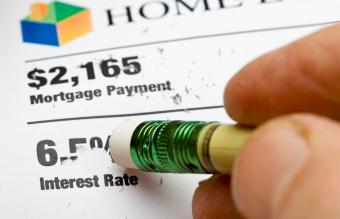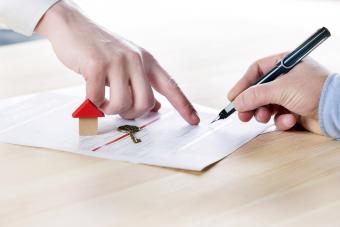
Mortgage payment late charges are the fees charged by your mortgage lender when you don't make a mortgage payment on time.
The Cost of Mortgage Payment Late Charges
The specific dollar amount that a lender charges for mortgage payment late charges depends on the lender. Lenders are free to set their own late charges, and they let you know what the costs and fees of a late payment will be upfront. Information on how much you will be charged for a late payment is generally listed either in your original loan agreement and/or on your mortgage statement that you receive each month.
Specific amounts for late fees can vary. While some mortgage lenders impose a flat late fee, other lenders calculate the late fee as a percentage of the payment due. If you had a $1000 late mortgage payment, and your lender imposed a 5% late fee, your lender will charge you $50.00 in late fees.
Late Fee Timeline
Each lender's policy on when late fees are charged is also dependent on the particular lender. For most lenders, a grace period is offered. This means if your check gets to your lender one day late, you usually won't be hit with a late fee.
The grace period often ranges from 10 to 15 days. Again, you should check with your mortgage company to find out exactly how long your grace period is so that you make certain to send your payment in before that period ends to avoid the hefty penalty for failing to pay on time.
Late Fee Charges
Late fees may be assessed as a separate item on your bill the following month. Your lender may also automatically deduct your late fees from your next payment if you don't send in the additional funds.
If you do not send in additional funds to cover the previous month's late charge, you will be considered delinquent again because your regular monthly mortgage payment will not cover the total bill for the month.
Avoiding Mortgage Late Charges
Late payments not only cost you money, but they also hurt your credit score. Your home is an important investment and you want to make sure you pay on time and keep the loan in good standing whenever possible. The best way to avoid late charges is to make your payment well before the deadline each month.
A few tips to help keep your payments on track include:
- Open your mortgage statement and any documents or notifications from your lender immediately.
- Set up automatic payments or withdrawals from your checking account in order to automate the process so you can ensure that nothing goes wrong.
- Put a reminder on your calendar to check that the online bill pay went through without a problem and that the payment was applied correctly.
- If you know you are going to be late, you may also want to contact your lender beforehand and ask for an extension.
- If you are charged with a late fee erroneously, make sure you take steps to correct the problem.
Request Fee Waiver
If you do make a late payment, you will be charged a late fee per the terms of your contract. If it was your first late payment and you were close to the grace period, you may want to contact your lender and see if the fee can be waived as a one-time courtesy. Some lenders -but not all - will be willing to do this once.







